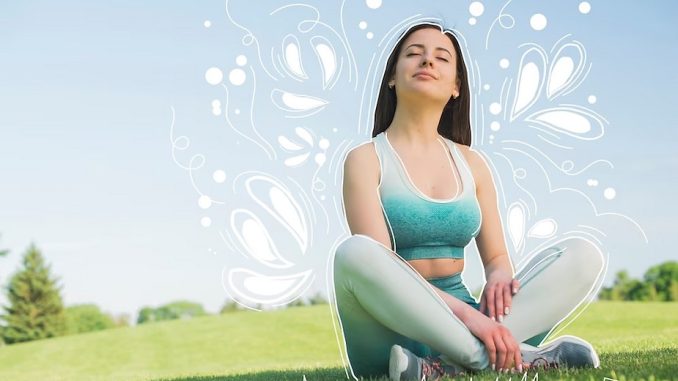
IntroductionIn today’s fast-paced world filled with unending requests and distractions, mental well-being seems like an uphill battle. However, amidst the chaos, there is a tremendous tool that may help us better able to handle disparate complexities of life in modern society. This tool is known as mindfulness. This article will describe mindfulness, look at some of its beneficial effects on mental health and take you on a visit to its practical uses in daily life.
What is Mindfulness?
At its root level, mindfulness means paying attention to the present moment without judgment or attachment with openness, curiosity and acceptance of what is. By totally engaging in whatever one is doing one becomes completely absorbed in it without any emotional reactions to outcomes. It is not about emptying the mind or achieving some state of blissful repose; rather, it teaches us how to perceive through our minds’ prevailing conditions and gain clarity on thoughts with practice.
Benefits of Mindfulness for Mental Well-beingMindfulness yields a host of benefits for mental well-being:
Reduced Stress: By helping individuals remain calm and equanimous in life’s often challenging situations, mindfulness reduces stress levels.
Increased Focus and Concentration: Through the exercise of paying attention to sensations of the moment, mindfulness improves concentration and cognitive performance.
Better Emotional Regulation: Mindfulness provides people with tools for observing, taming and reshaping their own emotions, leading to a greater emotional resilience and steadiness.
Greater Self-awareness: Through the practice of mindfulness, individuals come to know themselves more deeply–their thoughts and feelings leading to a still deeper level from which this understanding springs forth is cleared insight.
Greater Resilience: Mindfulness deepens inner strength and that of well as enabling people to more quickly bounce back from disappointments in life developments or setbacks.
More Positive Relationships: By fosterin empathy, compassion and non-reactiveness, mindfulness strengthens interpersonal ties and enhances communication abilities.
More practical strategies of cultivating attention
However, with practice and dedication, mindfulness can be fostered no matter how busy our schedules are. Here are some practical strategies to help bring mindfulness into your daily life:
Mindful Breathing: Every day, stop and take a moment to breathe mindfully. Just close your eyes and concentrate on your breath. Feel how your body is breathing in and breathing out. Watch for the rise and fall of your abdomen or the sensation of air flowing through your nostrils. Each time that your mind wanders, gently bring your attention back to your breathing.
Mindful Eating: Eating mindfully means paying full attention to what you are eating with no distractions. Observe the colors, textures and flavours of your food. Chew slowly and savour each mouthful. Notice how your body feels before, during and after eating. Eating mindfully can help you to foster a healthier relationship with food, as well as cultivating appreciation for nourishment.
Mindful Movement: Take part in exercises that are mindful, such as yoga, tai chi or qigong. Get in tune with what your body is feeling during movement, how your breath goes and when it comes out; take notice of the link between mind and body. Mindful movement not only promotes good health but also clears the mind and calms the emotions.
Mindful Listening: Use mindful listening when you communicate with others. Don’t wait to talk or formulate your next line. Instead focus your entire attention on the speaker. Be open, inquiring and emphatic as you listen. Observe the nuances of the speaker’s words, tone of voice and body language. Mindful listening nurtures understandings, creates connection and fortifies ties.
Mindful Attention: Bring mindfulness into your day by focusing on the present. Listen to today, smell what there is to smell, and touch its things. Look inside as well as outwards around you for the magic in life that is always there. Mindful notice brings an improved understanding, appreciation, and command over our daily life.
Mindful Break: Remember to pause mindfully even in the midst of your daily life to rest and rejuvenate. Breaking for a moment between chores or activities is an excellent opportunity to take stock of yourself and bring your consciousness back to this very present moment. During these interludes, draw a few deep breaths, relax the body, and feel at home now here at all. Mindful breaks can both prevent burnout and decrease stress while at one stroke promoting wellness in general.
Conclusion
With all the distractions, stresses and constraints of modern life, mindfulness offers a powerful antidote to this chaos. By practicing mindfulness we can build resilience in which comes and goes light or dark clouds while it will turn into clearer clarity that makes living from both an enjoyable art form yet also multi-tasks craft. Through mindful breathing, eating, movement, listening or simply awareness of surroundings one can bring the benefits of mindfulness into any part of life. May we all have a dull life, for as we go on cultivating mindfulness in our own way and throughout others around us come to show even more gladness each day.

Leave a Reply